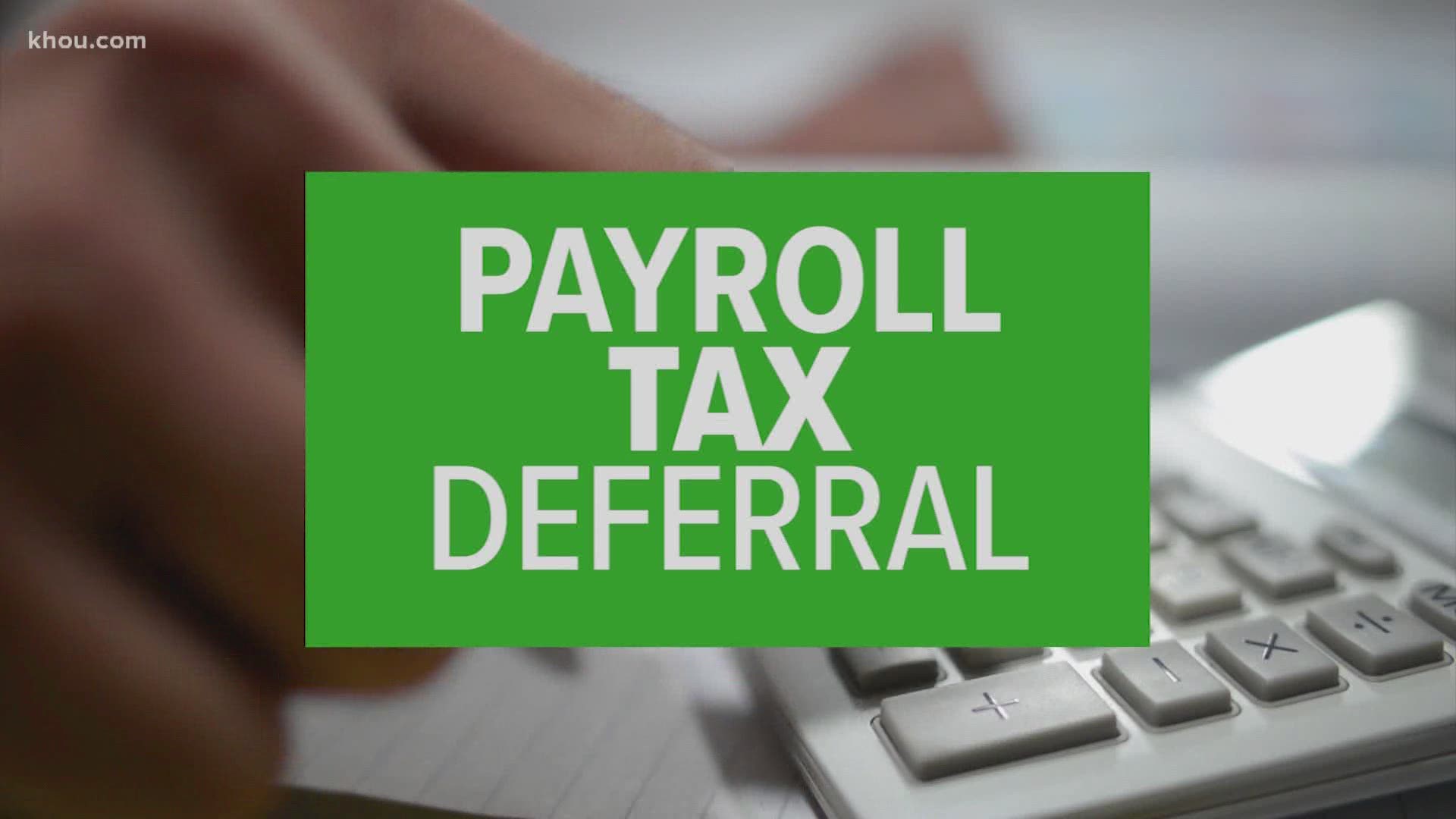HOUSTON — Your paycheck may be a little bigger starting this week. But why?
It’s part of President Donald Trump’s new payroll tax deferral program, where over the next four months, some employers will no longer withhold the 6.2 percent Social Security tax from paychecks.
For example, for employees making $30,000 a year, that comes to about $72 a paycheck.
But the caveat here is it will have to be paid back at some point next year.
Trump said his goal is to forgive that tax altogether if he’s re-elected in November, but KHOU 11 wanted to VERIFY, is that something the president has the authority to do?
KHOU 11 talked to two sources for this: KHOU Political Analyst Bob Stein and UHD Assistant Professor of Business Law Dietrich von Biedenfeld.
They referred us to the United States Consititution, Article 1, Section 9, Clause 7, that says, “No Money shall be drawn from the Treasury but in Consequence of Appropriations made by Law."
Both agree a payroll tax deduction like this is considered an appropriation of money. They said it takes an act of Congress to re-appropriate money.
So we can VERIFY this to be false. Trump does not have the sole authority to appropriate money, or in this case, deduct taxes.
What he can do, however, is ask Congress to do it for him.
And both agree, in order for Congress to approve it, it would have to first be presented in the House of Representatives as a bill, and then would have to pass through a certain number of committees before going to the House Floor for approval.
Once passed in House, the bill must be passed in Senate the exact same way, and then it goes to the president’s desk to be signed.
So for this tax deferral to be forgiven, it would have to pass both the House and Senate, before the president’s approval.

